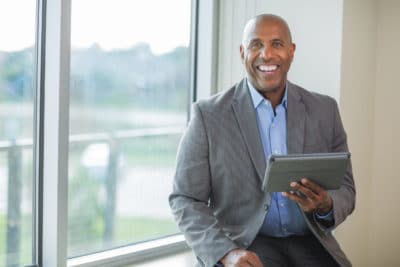COVID-19 Boomer Career Skills
The conventional view serves to protect us from the painful job of thinking.
~John Kenneth Galbraith
Aging in Place
Like you, I have been reading reports detailing the catastrophic damage to the American workplace that the COVID-19 pandemic is causing. As one who focuses on issues of aging, I am particularly disheartened by the toll it is taking on older employees.
A recent article written by Eric Bachman in Forbes (4/30/2020) COVID-19 Layoff Or Pretext For Age Discrimination Against Older Employees? He laments the fact that many businesses are struggling to stay afloat given the ravages of COVID-19 on economic activity. However, there are some organizations which may see this as an opportunity to terminate older workers. Some reasons given are the usual suspects:
1) Higher Salary of older employees
2) Additional costs of Insurance payouts due to illness related to COVID-19
3) Stereotypes of older workers technophobia and not having the technological skills required for the possible new post-COVID-19 virtual/remote work setting (telework)
4) Nearness to retirement
Red Flags of Age Discrimination
Some organizations will use the pandemic as a cover for illegal age discrimination. The signs will present in the form of small-scale layoffs of older workers with higher pay–then they are replaced with younger workers who are less expensive to employ.
The pandemic has shed light on many societal inequalities, and in this case the so called “telework divide” of older workers who do not have the option of working from home. A study from the progressive Economic Policy Institute (EPI) think tank suggests that people 65+ are the least able to work remotely.
Those older workers who have been employed in the retail trade, manual labor or food services will suffer the most. Other higher educated older workers in professional fields like scientific, technical services or management will fare much better.
Learn. UnLearn. ReLearn.
Over the past few years, I have noticed a term that has been hoisted into the consciousness of multiple business and industry leader’s vocabulary. “Disruption” as in tearing down old concepts and in their place introduce ideas that are more effective, serving of the individual, organization, and greater good. For example, Jo Ann Jenkins of AARP has literally written the book on it: Disrupt Aging: A Bold New Path to Living Your Best Life at Every Age; the author is championing a new way to think about growing older that focuses on more life-affirming aspects of aging. I agree with the message, unless you change the fundamental underlying patterns of thought, you will continue to get the same outcomes that may not serve older adults in a rapidly changing world.
Historically, the study of aging has focused primarily on what goes wrong in old age, emphasis on physical and mental declines. This was called the “Peak and Decline” model and it needed disruption–because that is not the entire story. But the damage has been done and ageism, as this pandemic is proving, is alive and well despite efforts by many to provide evidence to the contrary.
That being said, older adults can be proactive and write their own script during this pandemic. In fact, many have heroically returned to the workplace in a time of national need. These boomers are employing much in-demand skills that they acquired over a lifetime. They are fortunate in some respects, but others will need to develop new skills for a new COVID-19 workplace.
A useful mantra for boomers might be “Learn. UnLearn. ReLearn.” Nothing has disrupted aging quite like COVID-19 and it will demand new ways of thinking and behaving. Learning new things, unlearning them, and relearning has always been important–now it is essential for survival.
Think Like a Rocket Scientist
A book that is timely in this COVID-19 era is Ozan Varol’s Think Like a Rocket Scientist (PublicAffairs, New York, 2020). Varol describes a process called “First-Principle Thinking” which can be defined by these three steps: (used by Elon Musk)
STEP 1: Identify and define your current assumptions.
STEP 2: Breakdown the problem into its fundamental principles.
STEP 3: Create new solutions from scratch.
The key idea for baby boomers in this current turbulent employment environment (and into the future) is the idea of creating new solutions from scratch. I see this thinking process as an unfair competitive advantage for older workers who adopt this model.
Here’s why:
If you are let-go from your current employment you will be tempted to look in a similar area–But what if you ventured a new gig? As challenging as that sounds, it might just be your opportunity to employ First-Principle Thinking in a new field. Only, the advantage is that you have many years of work experience to draw from in your new endeavor. Essentially the equation looks like this:
Experience + New GIG + First-Principle Thinking = Success!
Younger potential employee’s equation might look like this:
Little to no experience + New GIG = Unknown
In my studies of Older artist and creativity I found a skill called “Divergent Thinking” which means the artists found multiple ways to solve creative challenges. It took years to refine this skill and they employed it to their creative advantage as age-imposed limitations set in. Younger adults are often taught in school “Convergent Thinking” or find (google) the one right answer. There are certainly times when one right answer is called for–but frequently the real world calls for multiple paths to solve problems.
Life Experience can inform new thinking in ways not available to younger cohorts (Experience + Fresh Perspective). The key is developing an appetite for disruption and comfort with uncertainty–I know, a challenge as we get older, but if COVID-19 has taught us anything, it is that living with uncertainty will demand the ability to adapt our thinking.
_____________________________________________________________________________________________
Think Like a Rocket Scientist by Ozan Varol PublicAffairs, 2020

